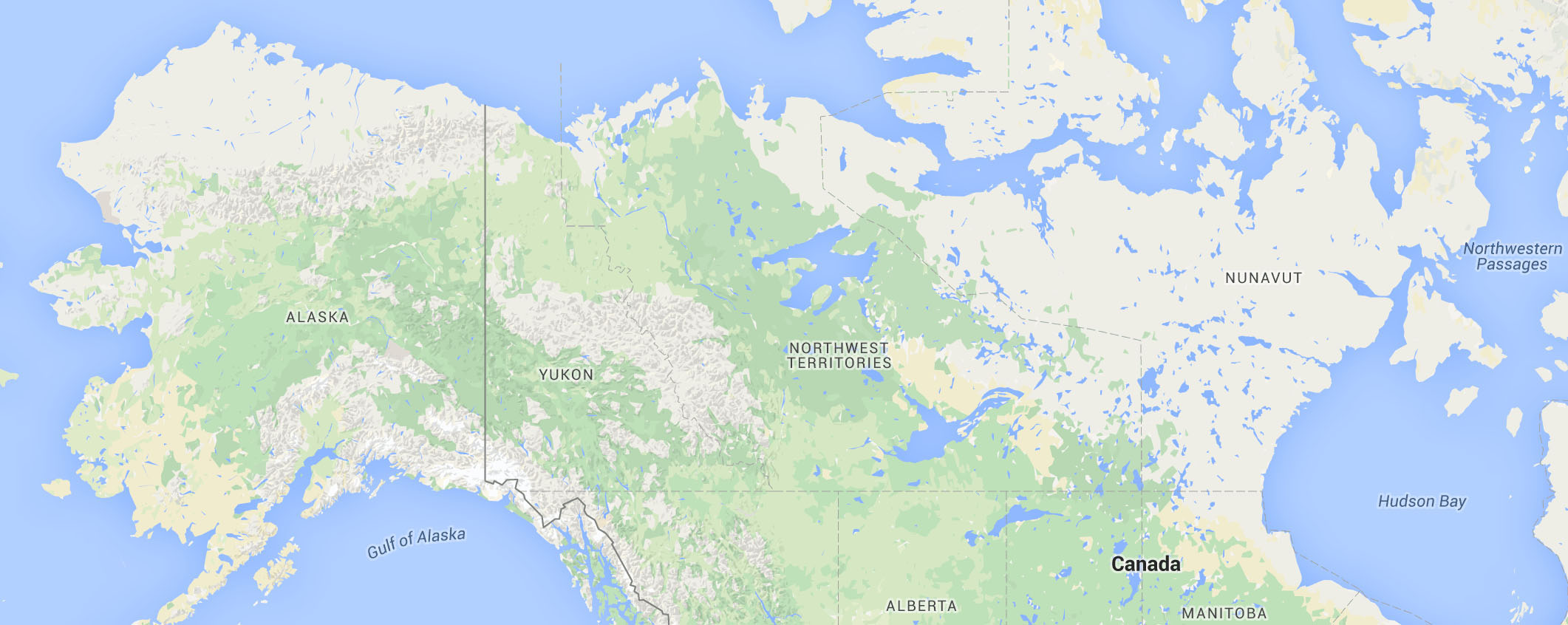People have a lot of questions about the Arctic these days. Type “Is the Arctic” into your search bar and Google provides a few examples:
- “Is the Arctic a desert?”
- “Is the Arctic a country?”
- “Is the Arctic a continent?”
- “Is the Arctic part of North America?”
- “Is the Arctic melting?”
- “Is the Arctic melting or not?”
- “Is the Arctic made of ice?”
- “Is the Arctic melting due to global warming?”
- “What is the Arctic Monkeys best album?”
My hope is that this new, biweekly column will provide some answers, both to these most common questions—well, aside from that last one—and to more unexpected ones as well.
Let’s start with some basics. “The Arctic” technically refers to the region that lies north of the Arctic Circle, latitude 66° 33’ 44”, and encompassing sections of northern Canada, Alaska, Russia, and Scandinavia. But areas south of the Arctic Circle proper—the sub-Arctic—are often lumped in as part of “the Arctic,” and I’ll be working with that broader geographical range here. I won’t, however, be dealing with the full circumpolar region. Instead, I’ll focus on the North American Arctic: Alaska and the three Canadian northern territories—the Yukon Territory, the Northwest Territories, and Nunavut. Generally, this means we’re dealing with the North American continent from the 60th parallel on up, although I’ll occasionally dip below that to write about, say, oil tankers in the Inside Passage or the polar bear migration through Churchill, Manitoba.

I’ll be looking at this vast landmass, more than two million square miles, through the lens that most outsiders use to view it: the natural environment. But I should be clear: The Arctic is more than the empty, pristine wilderness it’s so often presented as down south. There are people here—closing in on a million of us—and there are urban spaces, and Starbucks franchises, and road rage. There are elaborately legislated modern relationships between the national governments in Ottawa and Washington and the indigenous peoples that have lived here for millennia. There are bears and wolves and salmon and caribou and oil wells and open pit mines and hydro dams and every kind of alternative energy project you can imagine. As Facebook would say: It’s complicated.
The Arctic is more than the empty, pristine wilderness it’s so often presented as down south. There are people here—closing in on a million of us—and there are urban spaces, and Starbucks franchises, and road rage.
This won’t, as a general rule, be an opinion column. Instead, I plan to report on environmental issues in Alaska and northern Canada with an emphasis on local views and local expertise, local conflicts and local activism. I’ve lost count of all the times I and other northern residents have grumbled to each other on social media when yet another southerner is opining about our home in yet another southern publication. People in the Lower 48 and around the world are intensely interested in the Arctic right now—and that’s good! But it can sometimes feel like everyone else is talking over our heads. I hope to use this space to give northerners a louder voice in the conversation.
Who am I? I’m a freelance writer who’s lived in Whitehorse, the capital city of the Yukon Territory, for the past five years. I’ve spent those years traveling frequently to Alaska, around the Yukon, and—less frequently—to the Northwest Territories and Nunavut. I’ve worked as a laborer in a remote Yukon mining camp, interviewed Aleut and Inuit elders, fished for halibut in the Gulf of Alaska, driven my car along the frozen surface of the Arctic Ocean, and lost count of the number of times I’ve seen the Northern Lights.
I’m not going to pretend that I already have the answers to all of the questions people have about a changing Arctic. The point of doing this as a reported column, rather than a series of opinion pieces, is for me to use my position here, and my contacts across the region, to seek those answers out. I’ll be figuring things out as I go—and I hope you’ll follow along.
Dispatches From a Changing Arctic is a biweekly series of reported stories from Alaska and the three Canadian northern territories.





